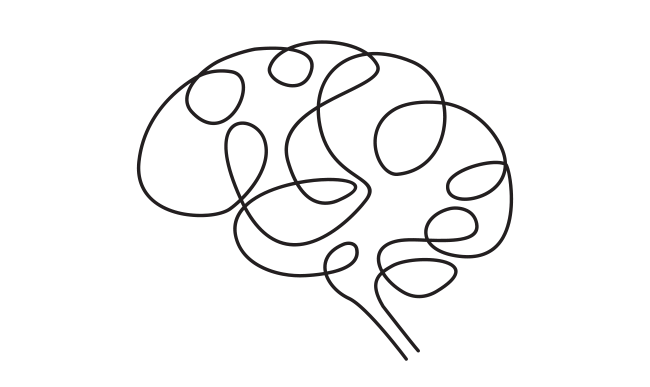Remember me - Winter 2023

In this issue:
THANK YOU FOR YOUR SUPPORT IN 2023
As another year winds down, we wanted to take a moment to thank you for your support. Your contributions helped fund essential programs and services for those impacted by dementia. Your generosity also helped fuel advancements in dementia research including a clearer picture of the outlook for dementia in Canada, emphasizing the urgency of our mission. Together we have accomplished so much, but with more work to be done, we hope you’ll make one more donation this year. Your gift by December 15 will be matched, doubling your impact.
From your friends at the Alzheimer Society of Canada
INFORMATION SESSIONS WERE “A LIFE-SAVER”

I worked in long-term care for years before my dad developed Alzheimer’s disease, and I thought I knew what to expect. When he was diagnosed, I was committed to support him in any way I could, but as his condition changed, I faced new challenges I hadn’t anticipated. When he started having trouble communicating and finding his way, I had to find innovative solutions to ensure his independence without risking his safety or others’.
As the issues mounted, I reached out to the First Link team at the Alzheimer Society of Canada. They told me that my local Alzheimer Society hosted sessions about care, communication, legal and financial resources. I walked into the first session assuming that I knew a lot but quickly discovered I had plenty to learn!
Sessions covered communication tips, strategies for hygiene, dressing and more, how the law works and how to make decisions about care and finances.
The information prepared me for many decisions I’d eventually have to make, and that relieved a lot of my stress. I was able to support my dad in doing the things he enjoyed with the people who loved him until his last days. I’m so grateful to the Alzheimer Society for providing the right support and information when and how I needed it.
MONTHLY DONOR CORNER: WHY I GIVE
My mother lived with the cognitive, physical, psychological and emotional effects of dementia. It was heartbreaking to witness, particularly since she had no family history of dementia.
One of the most difficult aspects of living this journey with my mother was trying to get the medical profession to listen to me when she had medical issues and couldn’t speak for herself. I was shocked. The obstacles we had to overcome were almost unbelievable and shouldn’t have existed!
And yet, I’m hopeful that the Alzheimer Society will make a difference. For all the work you do – support, education, research, and more – I thank you deeply. – Olivia Preston
DEMENTIA-FRIENDLY DESIGN CAN IMPROVE LIVES

Design shapes the world we live in. From the design of entire cities and streets to the design of a single webpage or brochure, there are ways to improve experiences for people who are living with dementia. Tune in to listen to our panel of experts share their extensive expertise.
Dr. Samantha Biglieri specializes in accessibility and disability in planning and understanding the experiences of people living with dementia in their own neighbourhoods.
Arnold Cheng is the founder of Spectrum Ability and has assessed everything from downtown office towers to large community centres to neighbourhood gardens and park paths.
Keith Francis – amongst many things – is a member of the Design and Dementia Community of Practice at BrainXchange, a network dedicated to improving the quality of life and supports for persons with or at risk of having brain-health needs.

Moderator Leah Sandals is Senior Editor, Knowledge Translation and Exchange at the Alzheimer Society of Canada.
NEW DRUG LECANEMAB Q&A
Please refer to alzheimer.ca/Lecanemab for updated information.
Q: What is Lecanemab?
A: Lecanemab (brand name Leqembi) is a drug specifically for people with mild cognitive impairment or the mild dementia stage of Alzheimer’s disease – not for people at moderate or later stages. Lecanemab is not a cure, but can slow the progression of Alzheimer’s disease.
Q: How long will it take for Health Canada to review the drug and make a decision?
A: Health Canada began reviewing Lecanemab in May 2023. Their website explains that timing can vary depending “on the product being submitted and the size and quality of the submission, and is influenced by [our] workload and human resources.”
Q: Can people in Canada use Lecanemab?
A: In Canada, the drug is not available outside of experimental drug trials. Ask your doctor, neurologist or dementia specialist about trials or studies in Canada or visit alzheimer.ca/find-studies

CREATE A SAFE, SUPPORTIVE ENVIRONMENT

Start by focusing on prevention. Examine the environment carefully, looking for potential hazards such as carpets that could cause a fall, easily-accessible poisons, a gas-fire stove top, small choking hazards and doors that could lock accidentally and trap someone.
Simplify personal care routines. By breaking routines down into simple, step-by-step procedures, accidents are easier to avoid.
Be ready in case of emergency. Keep a working fire extinguisher nearby, a fully stocked first-aid kit on hand and a list of emergency numbers by the phone.
Be patient and slow down. It’s always best not to rush someone living with dementia.
HEALTHY HOLIDAY GRANOLA
This vegan holiday granola is low in salt, saturated fat, cholesterol and sugar. And it makes a delicious gift!
Ingredients:

- 3 1/2 cups old-fashioned rolled oats
- 1 tsp each ginger & cinnamon
- 1/2 tsp salt
- 1/4 tsp nutmeg
- 1/3 cup maple syrup or honey
- 3 tbsp blackstrap molasses
- 1/4 cup olive oil
- 3/4 tsp vanilla extract
- Optional: dried cranberries, pecans and/or almonds
Preparation:
- Preheat oven to 175C (350F) and prepare a lined baking sheet pan with parchment paper.
- In a large bowl, combine all dry ingredients. Mix thoroughly.
- Add remaining wet ingredients to the dry mixture and stir until well-coated.
- Pour granola onto prepared baking sheet and bake for 17-20 minutes.
- Let granola rest on baking sheet for 5 minutes to cool down and harden, then crumble and use as needed.
WHY LEAVE A GIFT IN YOUR WILL?

It’s convenient and easy to arrange: Your bequest can be made no matter how old you are and for any amount you wish. Simply instruct your lawyer to include a bequest to the Alzheimer Society of Canada in your will or codicil.
Reduce taxes: The Alzheimer Society will issue a charitable tax receipt for the full value of your bequest. Your estate will use this receipt to reduce the tax payable on your final tax return.
Genuinely flexible: Choose a specific amount, a percentage of your estate, or the residue of your estate after your debts have been paid and other bequests made.
You stay in control: Retain use of the charitable gift asset during your lifetime.
A lasting, personal legacy: Your bequest can be a lasting memorial for anyone you wish to honour.
Please contact Dana Lecours at: 1-800-616-8816 ext. 2951, by e-mail at dlecours@alzheimer.ca, or visit alzheimer.ca/GiftInYourWill
